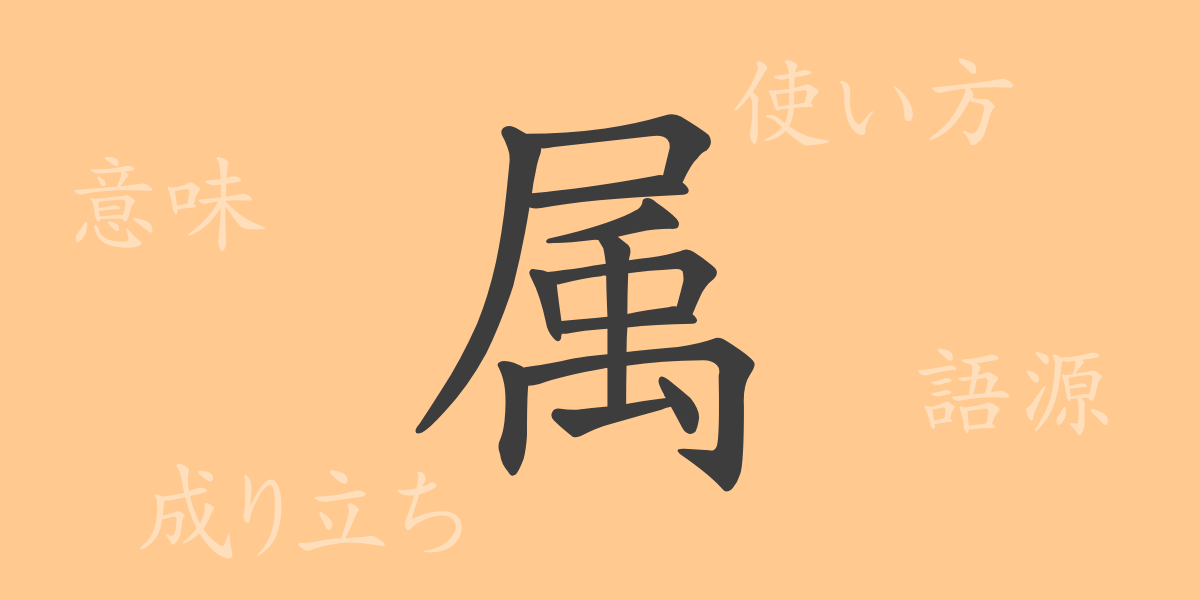The Japanese language boasts thousands of kanji, each with its own history, meaning, and charm. “属” (ゾク) (zoku) is no exception. This kanji, frequently used in everyday life, is indispensable for expressing classifications and affiliations across various fields. This article delves into the origins, meanings, and uses of “属,” exploring its depth through various idioms and proverbs.
Origin of “属” (zoku)
The kanji “属” originated in ancient China. Its form combines “𠂤” (indicating the will of a commanding sovereign) with “禹” (representing those who follow), symbolizing the concept of belonging or being part of something. Over time, this kanji was adopted in Japan, where it developed unique readings and uses, enriching its expressive potential.
Meaning and Usage of “属” (zoku)
“属” primarily means “to belong to” or “to be affiliated with.” It is also used to classify, indicated by the phrase “~に属する” (belong to a certain category or group). For example, it can be used as in “彼はそのチームに属している” (He belongs to that team) or “この植物はバラ科に属する” (This plant belongs to the rose family). Furthermore, it denotes status or attributes, used in terms like “属人” (person affiliated with a certain group or organization).
Readings, Stroke Count, and Radical of “属” (zoku)
The kanji “属” has several readings and structural details:
- Readings: On’yomi “ゾク”, Kun’yomi “さかん”
- Stroke Count: 12 strokes
- Radical: “尸” (しかばね) (shikabane)
Idioms, Phrases, and Proverbs Using “属” (zoku) and Their Meanings
There are numerous idioms and phrases that include “属,” each illustrating the diversity of its use in Japanese:
- “所属” (Affiliation) – Being part of an organization or group.
- “属性” (Attribute) – Essential qualities or characteristics.
- “私属” (Private possession) – Something personally belonging or privately owned.
- “分類” (Classification) – Grouping similar or related items.
- “帰属感” (Sense of belonging) – A feeling of belonging or unity with a group.
These idioms and phrases demonstrate the versatility of “属” in Japanese language usage.
Conclusion on “属” (zoku)
The kanji “属,” from its origins to the present, is essential for expressing concepts of affiliation and classification. Its varied readings and uses in Japanese highlight the depth of the language. As seen in various idioms and phrases, “属” seamlessly integrates into our daily lives. Through this article, we hope to enhance your understanding of “属” and aid in grasping a richer spectrum of Japanese expression.

























